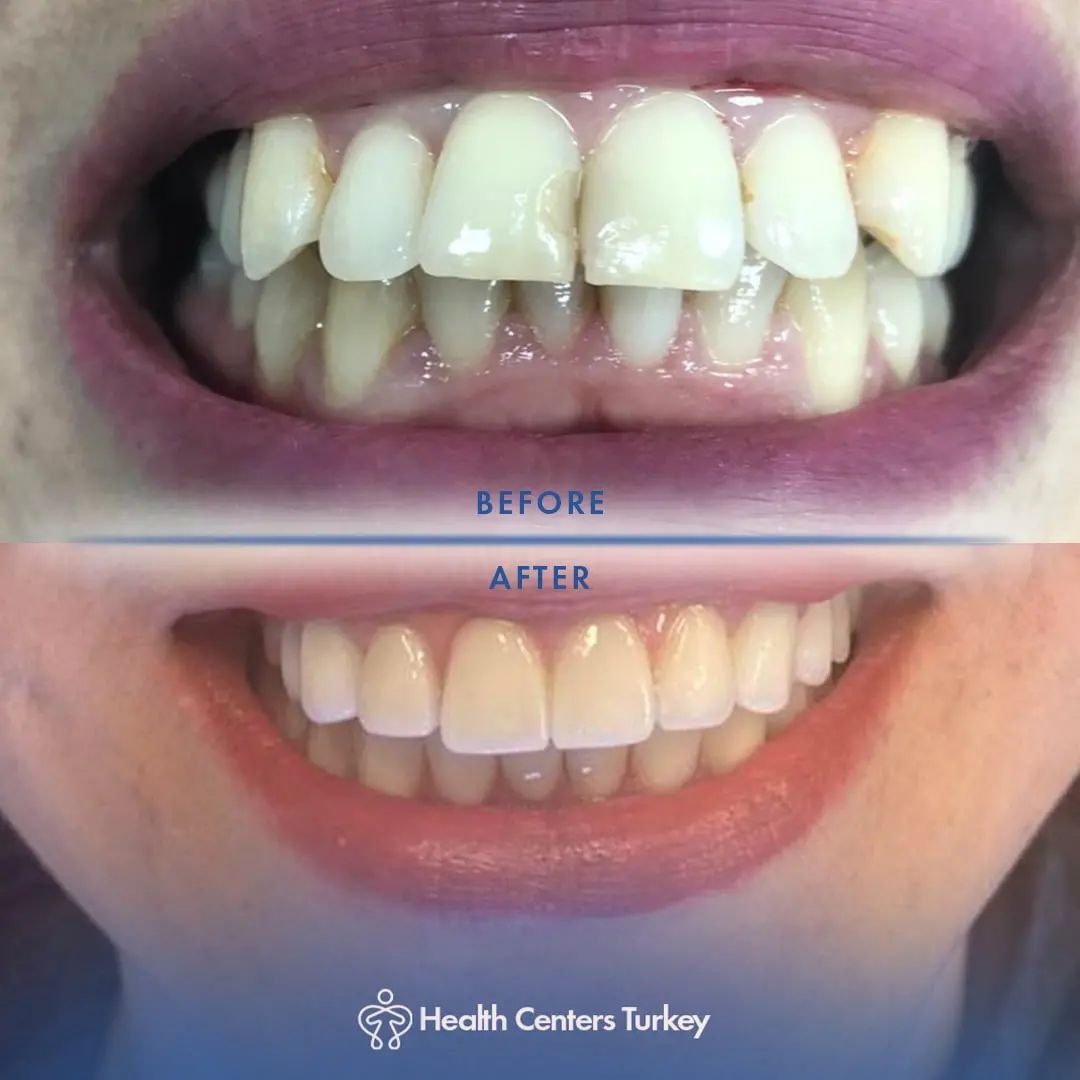Holistic Dental Care Packages for Perfect Smiles
Holistic Dental Care Packages for Perfect Smiles
Blog Article
Enhance Your Smile with State-of-the-art Cosmetic Dentistry

Dental implants have become a focus in modern dentistry, providing a dependable solution for these dealing with tooth loss. Among the multiple benefits they provide, one vital aspect value contemplating is their impact on adjacent teeth. Understanding how dental implants have an effect on surrounding teeth aids in making informed choices about oral health.
When a tooth is lost, neighboring teeth can simply shift toward the area left behind. This motion can lead to misalignment, which compromises the general bite and performance of the mouth. Dental implants mimic natural tooth roots, thereby sustaining the position of adjacent teeth.
Holistic Guide to Dental Implants and Cosmetic Treatments in Turkey
The stability provided by an implant is crucial, because it helps in preserving not just the bodily alignment but also the structural integrity of the jawbone. When a tooth is missing, the underlying bone can begin to deteriorate because of lack of stimulation. An implant exerts strain on the bone throughout chewing, just like a natural tooth, which promotes bone health.
In some circumstances, a bridge or partial denture may be thought of as an alternative choice to implants. While these choices could restore some functionality, they will place extra stress on neighboring teeth. Bridges usually require filing down the encompassing teeth to accommodate the anchors, thereby affecting their health over time. Dental implants, however, do not alter present teeth, making them a extra conservative alternative.
Tailored Treatment Approaches to Meet Your Needs
Hygiene turns into one other critical factor when considering adjacent teeth within the context of implants. With dental implants, the person can maintain a regular hygiene routine just like natural teeth. Flossing and brushing across the implant are straightforward, ensuring that the gum tissue remains wholesome and minimizing the risk of gum disease that could adversely affect adjacent teeth.
Moreover, the supplies utilized in dental implants are biocompatible. This means they're designed to combine nicely with the body, reducing the probabilities of an antagonistic response. This attribute not solely makes the implant secure but also protects nearby teeth from potential issues that could arise as a end result of contamination or infection.
In phrases of aesthetics, dental implants supply a natural feel and appear, carefully resembling authentic teeth. Adjacent teeth benefit from this aesthetic appeal as well. When an implant is placed, the surrounding gum tissue can be shaped to imitate natural contours, thereby enhancing the general appearance of the smile. This aesthetic issue can encourage people to put cash into their oral care routines, benefiting each the implants and adjacent teeth in the long term.
Transform Your Smile with Veneers in Turkey
Another concern is the potential for gum disease, which can affect the health of adjacent teeth. Gum disease can occur when plaque builds up around teeth and implants. Regular dental visits and appropriate oral hygiene can mitigate this concern. The presence of implants can also serve as a motivator for higher dental hygiene practices, as people turn into extra aware of sustaining their general mouth health.
Studies have shown that dental implants can contribute to a significant improvement in quality of life. Patients often expertise elevated confidence and are much less hesitant to smile or interact in social interactions. A healthy and well-maintained smile indirectly promotes better care for adjacent teeth, as people tend to turn out to be more aware of their total oral hygiene.
One often-overlooked facet is the psychological influence of dental implants on patients. Knowing that implants provide long-term options can ease the nervousness associated with tooth loss. With fewer worries about future tooth shifts, sufferers usually tend to make investments effort and time into caring for his or her teeth, which includes adjacent teeth.
In conclusion, dental implants serve as greater than only a answer for missing teeth; they play a pivotal role in maintaining the health and integrity of adjacent teeth. From stopping misalignment to promoting gum health and enhancing aesthetics, the advantages are manifold. By opting for implants, people cannot only restore performance but also foster a more healthy oral surroundings for surrounding teeth. The psychological and aesthetic advantages additional contribute to an overall enhanced quality of life.
Cosmetic Procedures Available in Charming Turkey
In the long run, understanding how dental implants affect adjacent teeth can guide people in making empowered decisions regarding their dental health. The integration of those implants into the mouth acts as a stabilizing force, safeguarding each the physical alignment and performance of neighboring teeth, while selling a long-lasting, healthy smile.
- Dental implants sometimes do not exert strain on adjacent teeth, sustaining their integrity and decreasing the chance of shifting or misalignment.
- The placement of an implant often encourages higher oral hygiene habits, positively influencing the health of adjacent teeth via improved cleansing practices.
Quick Dental Solutions for Time-Conscious Visitors
- In some instances, dental implants can stimulate the encircling bone, which helps protect the natural teeth's place and overall dental structure.

- The gap left by missing teeth can result in bone loss; dental implants can prevent this, thereby defending adjacent teeth from potential problems.
- Elevating Care Standards in Turkish Dental Clinics
Exceptional Dental Services Focused on Quality Care
- By restoring the function of a missing tooth, implants assist distribute chew forces evenly, decreasing wear and stress on neighboring teeth.

- Properly placed dental implants can act as a help structure, preventing unwanted movement of adjacent teeth resulting from tooth loss.
- The presence of an implant may improve the aesthetic appearance of surrounding teeth by filling in gaps and supporting facial structure.
Innovative Oral Health Techniques for All Needs
- Dental implants get rid of the need for adjacent teeth alteration, unlike bridges, which require reshaping the nearby teeth for support.
- Implants additionally cut back the danger of gum disease in comparability with different tooth replacement options, indirectly benefiting adjacent teeth by promoting total oral health.
Elevate Your Oral Health with Veneers.
- Long-term success of dental implants is linked to the health of surrounding teeth, emphasizing the importance of regular dental check-ups and maintenance.
How do dental implants have an effect on adjacent teeth?
Remarkable Dental Services Focused on Quality Care
What are dental implants and how do they work with adjacent teeth?undefinedDental implants are artificial tooth roots positioned into the jawbone to help replacement teeth. They don’t have an result on adjacent teeth immediately, as they are impartial constructions. Instead, they might help maintain the integrity of surrounding teeth by this website preventing bone loss.
Can dental implants trigger injury to adjacent teeth?undefinedIf placed accurately, dental implants mustn't harm adjacent teeth. However, improper placement can lead to points like misalignment or strain, emphasizing the importance of selecting an skilled dental professional.
Will dental implants promote bone development round adjacent teeth?undefinedYes, dental implants help stimulate the jawbone, which can encourage bone progress. This can benefit adjacent teeth by maintaining bone density and stability within the space.
Budget-friendly Dental Care Packages in Turkey including Implants and Cosmetic Dentistry
Should I worry about gum disease affecting adjacent teeth after getting an implant?undefinedGood oral hygiene is crucial after getting an implant. Gum disease can nonetheless have an effect on adjacent teeth, but a properly maintained implant doesn't increase that risk. Regular dental visits may help monitor and keep gum health.
What happens to adjacent teeth if I lose a dental implant?undefinedIf a dental implant fails or is misplaced, adjacent teeth may shift due to adjustments in bite alignment and assist structure. This might lead to misalignment or further tooth loss if not addressed.
Are there any special care necessities for adjacent teeth after getting implants?undefinedMaintaining good oral hygiene practices, including common brushing, flossing, and dental check-ups, is important for both dental implants and adjacent teeth to forestall decay and gum disease.
The Hub for Quality Dental Care at Affordable Prices
Do dental implants assist support adjacent teeth when chewing?undefinedAbsolutely. Implants can enhance general bite perform, which can alleviate stress on adjacent teeth throughout chewing. This can lead to higher distribution of forces, promoting oral health.
How can I prevent issues with adjacent teeth and implants?undefinedConsistent dental care, including skilled cleanings and examinations, regular brushing and flossing, and following your dentist’s aftercare directions, are key to preventing issues.
Can adjacent teeth move if I have a dental implant?undefinedAdjacent teeth may transfer if they are not well-supported, particularly after tooth loss. A why not try this out dental implant helps keep the structure, reducing the danger of shifting teeth. Report this page